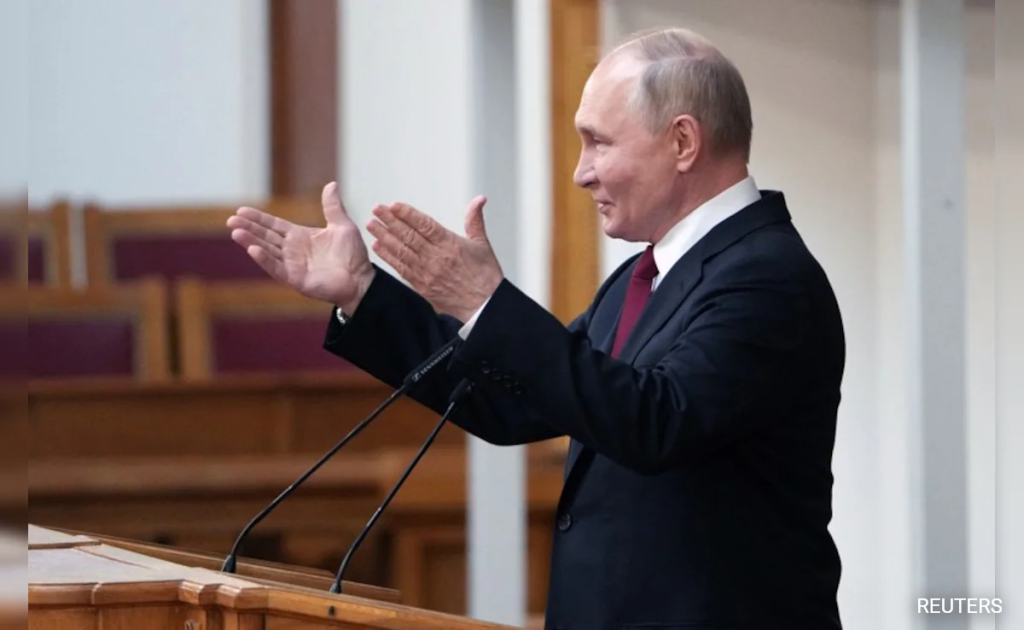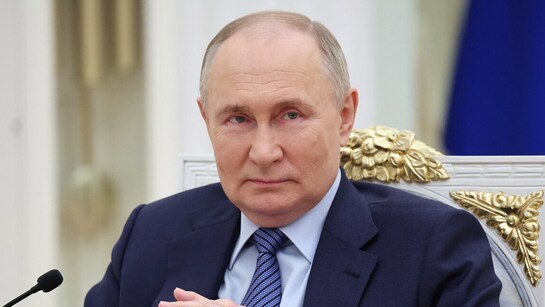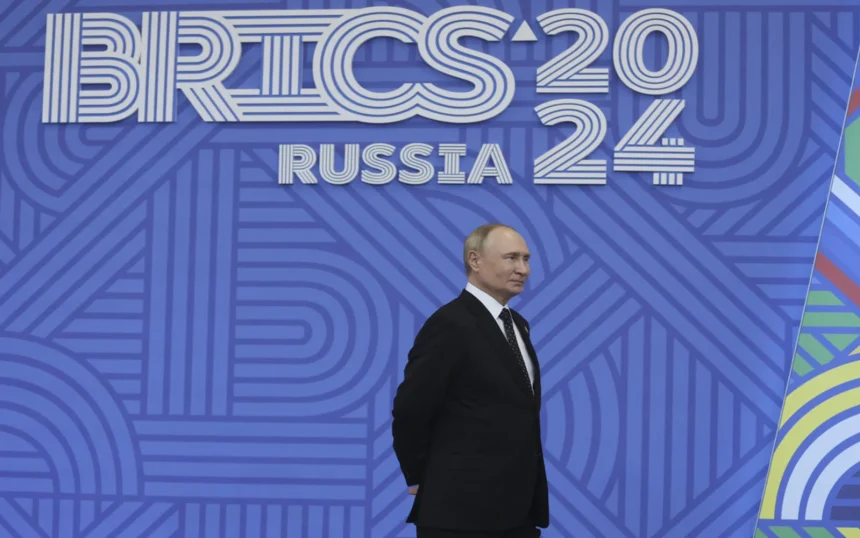In a recent address at a BRICS summit held in Kazan, Russian President Vladimir Putin raised alarm over the escalating tensions in the Middle East, warning that the region is on the brink of a full-scale war.
The conflict, which originally erupted in Gaza over a year ago, has since expanded into Lebanon, further destabilizing the region. Putin expressed deep concern about the widening hostilities and the potential for a broader conflict that could engulf multiple nations across the Middle East.
He pointed to the heightened tensions between Israel and Iran as a particularly troubling development, likening the situation to a chain reaction that threatens to spiral out of control. “The level of confrontation between Israel and Iran has sharply risen,” Putin remarked. “This is all reminiscent of a chain reaction, and it puts the whole Middle East on the verge of a full-scale war.”
The Russian leader did not stop at merely diagnosing the growing instability. He emphasized that the root cause of the ongoing violence lies in the unresolved Israeli-Palestinian conflict and the absence of a just solution for the Palestinian people.

According to Putin, the only viable path to lasting peace in the region is the creation of an independent Palestinian state, a solution that aligns with the two-state framework long endorsed by the international community, including the United Nations.
“The key to restoring peace and stability in the Palestinian territories,” Putin said, “is the implementation of the two-state formula, which has been approved by both the UN Security Council and the General Assembly.” He underlined that this framework is essential to addressing what he described as the “historical injustice” faced by the Palestinian people.
Putin’s remarks highlight a critical aspect of the Middle East conflict—the notion that without addressing the Palestinian quest for statehood, efforts to curb violence in the region will remain futile.
READ ALSO: U.S. Election: Iranian Hackers Targeting Websites Ahead of 2024 Polls, Warns Microsoft
He argued that failing to resolve this issue would perpetuate a “vicious circle of violence,” one that has claimed countless lives and continues to destabilize not only the immediate neighbors but also the broader global geopolitical landscape.
The presence of Palestinian leader Mahmoud Abbas at the summit underscored the importance of the Palestinian issue in discussions on the future of Middle Eastern peace. Abbas, a longtime advocate of the two-state solution, has consistently called for international support in establishing a sovereign Palestinian state based on pre-1967 borders, with East Jerusalem as its capital.
While international actors have long debated the Israeli-Palestinian conflict, Putin’s speech reinforced Russia’s position on the issue and its call for a balanced and just resolution.
The emphasis on the two-state solution, as a means to restore peace and stability, echoes similar sentiments from various world leaders and global institutions. However, implementing such a solution has remained elusive, primarily due to entrenched political, social, and religious complexities.

As the violence in Gaza, Lebanon, and other parts of the region continues to escalate, the urgency of finding a sustainable resolution becomes even more pronounced. Putin’s warning about the Middle East being on the verge of full-scale war should serve as a wake-up call to the international community.
Addressing the deep-rooted grievances of the Palestinian people and working toward a two-state solution might not only halt the cycle of violence but also lay the foundation for long-term peace and stability in one of the world’s most volatile regions.
The question now is whether the global powers are willing to move beyond rhetoric and take tangible steps toward achieving a resolution that has been elusive for decades.
Putin’s call for action at the BRICS summit serves as a reminder that the cost of inaction could be the further descent of the Middle East into chaos—a scenario that would have far-reaching consequences for international peace and security.

